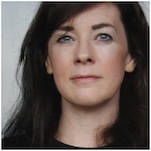Restlos Glücklich: The Restaurant That Combats Supermarket Waste
Photos courtesy of Restlos GlücklichAt Restlos Glücklich (meaning “Completely Happy”), food surplus becomes a healthy and exciting menu, served up with a side of raising awareness. The volunteer-run initiative in Berlin is aimed at establishing a non-profit restaurant which creates a menu around so-called food “waste” donated by supermarkets, farmers and other producers. Food which has not spoiled is often destined for the waste bin merely due to lack of storage, damage to packaging, or because it’s naturally misshapen and thus deemed unfit for the shelf.
Leoni Beckmann, a co-founder of Restlos Glücklich who works a full-time job alongside the time she volunteers on Restlos Glücklich, explained how the idea came about. “In Germany there’s around 13 million tonnes of food waste every year,” she says. “We thought, that’s way too much—what can we do to prevent this? We need to find a delicious way to show people what they’re actually throwing out. That’s how we came up with Restlos Glücklich: a restaurant where we cook with food surplus, which we get from our partners, for whom food waste is also a big issue. Our partners are very engaged, and it’s really important to them not to throw away food, that’s why they give it to us.”

Restlos Glücklich, which also coordinates cooking classes and workshops, works with a wide range of food partners, like German organic supermarket Denn’s, local farmers, and a winery which donates bottles with mistakes on the labels. After successfully raising €26,845 with their crowd funding campaign in September this year, the team is currently focused on opening the restaurant—securing a location, wading through the epic torrent of bureaucracy it takes to open such an operation in Berlin, and waiting for that check to arrive. But the campaign brought more than financial support, it brought Restlos Glücklich to the attention of larger social organizations too, from catering for the WWF and Oxfam, to attending meetings with German Minister for Agriculture.
“Our goal was €50,000 and we reached €27,000, which we were really happy with because we didn’t even think it would get that far,” says Beckmann. We also received a lot of press attention—the crowd funding campaign is more than just the money, you also make a lot of connections, so for us it was a big success. We are focused on opening the restaurant, but there are often periods where we have to wait for some bureaucratic decision to be made. So in the meantime we work on catering: We haven’t done any advertising but we get so many requests to cater events, for example a WWF conference, and an Oxfam event about global education.
“I’m definitely overwhelmed by the attention our project gets,” Beckmann continues. “Five weeks ago I was at a meeting with the German minister for Agriculture and I was wondering why they invited us there. It seems that our restaurant concept is really attractive. I’m surprised by all the emails we get from people saying ‘I think this is great concept, I want to help’.”

-

-

-

-

-

-

-

-

-

-

-

-

-

-

-

-

-

-

-

-

-

-

-

-

-

-

-

-

-

-

-

-

-

-

-

-

-

-

-

-









































